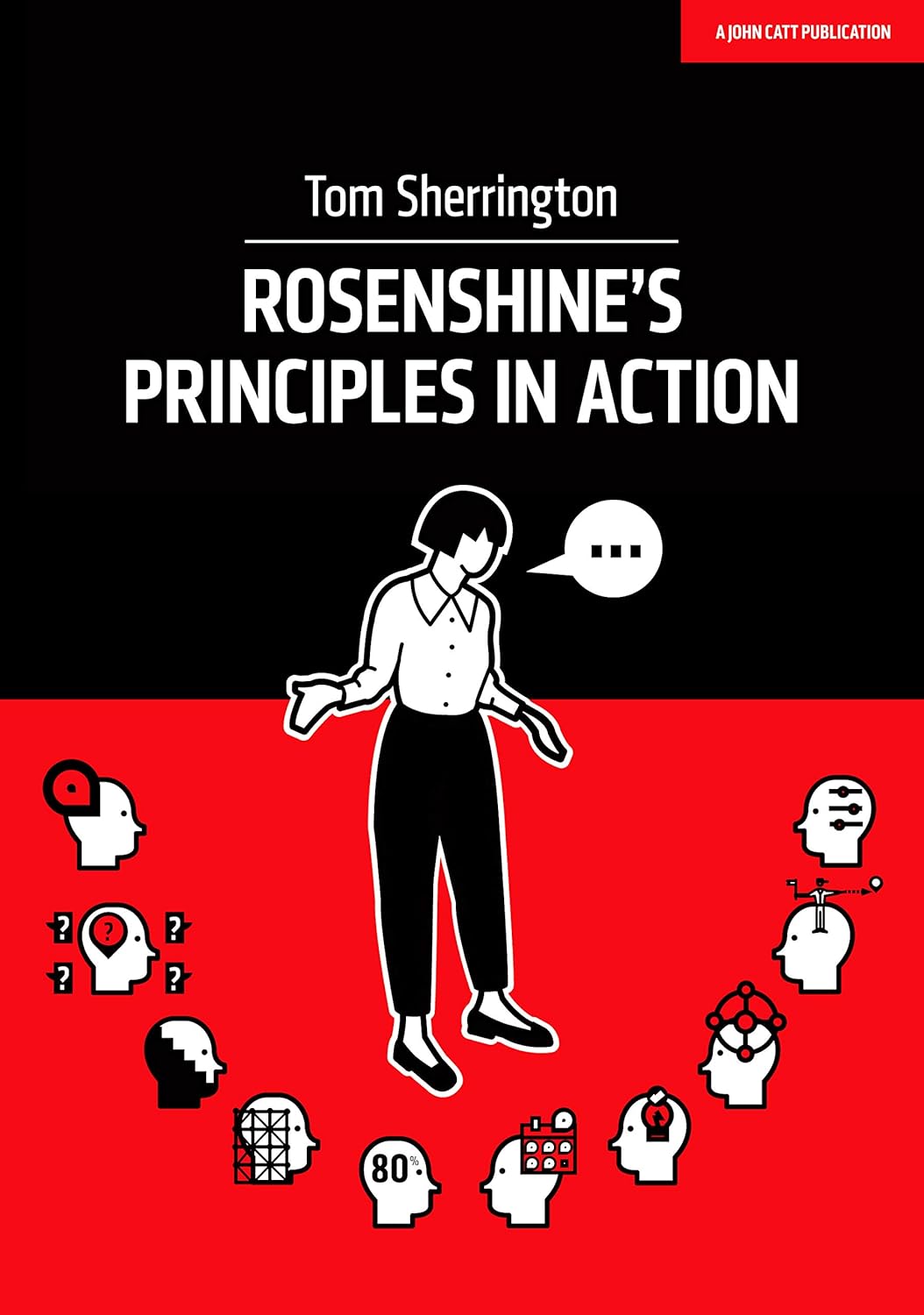About this deal
For recall to become automatic, Rosenshine writes that sometimes we need to overlearn. ‘Overlearn’ is certainly not a pejorative term; rather, overlearning is an important concept for the level of learning required to achieve mastery of some task, skill, the use of concept or to know or understand something with fluency (p. 13). For example, in discussion of the process of gaining mastery at mathematical problem-solving, Rosenshine writes:
Rosenshine observes that there was no conflict between the evidence emerging from the above sources. Indeed, the findings from the above sources ‘supplement and complement each other’ (p. 12) and the ‘sources overlap and add to each other’ (p. 39). He states that the ways in which the evidence from the sources relate to one another supports the claim ‘that we are developing a valid and research-based understanding of the art of teaching’ (p. 39). Rosenshine writes that review ‘can help us strengthen the connections among the material we have learned’ (p. 13). An idea Rosenshine emphasises throughout his principles is that recalling prior learning should ideally be automatic. ‘Automaticity’ is the stage where learning and practice has been undertaken such that recall is effortless, thereby freeing working memory capacity (p. 13). Working memory is the area of memory where we process information. It has very limited capacity and can only handle a few pieces of information at once (p. 13). https://theteachertrials.wordpress.com/2018/03/29/teacher-beliefs-and-research-why-do-we-do-what-we-do/ This strand involves the first and tenth of Rosenshine’s principles: ‘Daily review’ and ‘Weekly and monthly review’. With both of these principles, Rosenshine draws upon research concerning working and long-term memory.
Sherrington writes that this strategy is a ‘powerful mode of questioning and a form of guided practice’. This would need to be carefully incorporated into lesson planning for it to be successfully adopted as the default method of questioning, given the time it will take to ask each student several questions. Depending on class sizes, if it were the default approach, a set of students could be chosen each lesson to be asked questions, so there’s roughly an even balance across the students over a term or course.
then offers practical examples for how to apply each principle. The resource is short but provides concise examples of each ‘principle in action’ across a range of subjects. Present new material in small steps with student practice after each step: Only present small amounts of new material at any time, and then assist students as they practice this material’ (p. 13). Sherrington recommends that teachers should make ‘it the default that, in any given exchange, [teachers] are asking each student three/four/five questions, before moving on’. How would you define knowledge in this instance? Are you including skill acquisition and applied understanding as forms of knowledge, or are you referring more to facts and information? Second, explore the implications of each principle at a subject-specific level. The principles and the strands into which Sherrington divides them need to be contextualised for successful implementation and applicability. They ‘have meaning’, Sherrington writes, ‘only in the context of curriculum content’.Review the experience of practising using the ideas that were discussed, exploring successes, refinements, next steps.
 Great Deal
Great Deal 